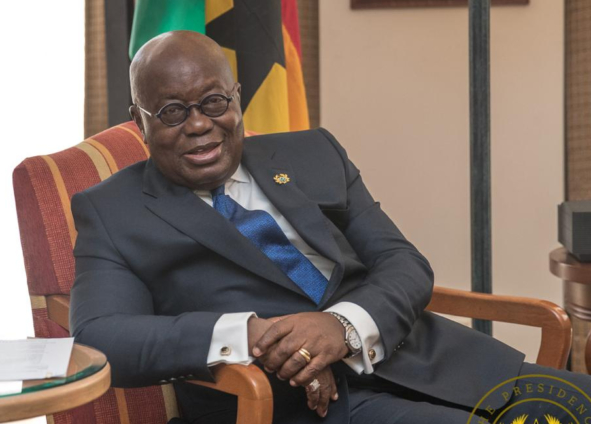President Nana Akufo-Addo has urged African leaders to guard against the continuing consequential power of rating agencies on African economies.
Speaking at the African Union meeting in Ethiopia on Sunday, February 6, he observed that credit ratings by these rating agencies have affected the cost of borrowing and access to the international capital markets.
His comment comes at a time rating agencies, Fitch and Moody’s, have both downgraded Ghana’s capacity to borrow, a situation that is affecting the country’s finances.
“We need to guard against the continuing consequential stranglehold of the rating agencies, which has affected the cost and access to capital markets for African countries, and has, during this Covid-19 period, resulted in the downgrading of many African countries, exacerbating, even more, their funding challenges.”
“Furthermore, it is of the utmost importance that the G20 leaders stick to their commitment to reallocate to Africa, SDR $100 billion agreed to at the Paris Summit,” he said.
On Friday, February 4, Moody’s Investors Service (Moody’s) downgraded Ghana’s long-term issuer and senior unsecured debt ratings to Caa1 from B3 and changed the outlook to negative.
It also downgraded the senior unsecured MTN programme ratings to (P)Caa1 from (P)B3 and the backed senior unsecured debt rating to B3 from B1.
“The downgrade to Caa1 reflects the increasingly difficult task the government faces addressing its intertwined liquidity and debt challenges”.
“Weak revenue generation constrains government’s budget flexibility, and tight funding conditions on international markets have forced the government to rely on costly debt with shorter maturity”, Moody’s noted.
Meanwhile, the Finance Ministry has appealed against the downgrade of the country’s credit rating to Caa1, from B3 by rating agency Moody’s.
In a statement, it said the government of Ghana is completely puzzled by the decision to downgrade Ghana’s credit rating to Caa1, despite the series of progressive engagements it had with the team from Moody’s, the quality of the data supplied, as well as the medium-term economic and fiscal focus of the government, underpinned by key fiscal consolidation reforms such as the policy decision to cut expenditure by 20%, as recently announced by the Minister for Finance, Ken Ofori-Atta.
Latest Stories
-
Vasseur questions ‘strange momentum’ of Formula One race director change
16 mins -
“I am disappointed in Kojo Manuel” – Merqury Quaye on “no tie” comment
17 mins -
Nana Kwame Bediako; The beacon of unity
19 mins -
Western Region: NDC youth wing embarks on phase 2 of ‘retail campaign’
45 mins -
Action Chapel International holds annual Impact Convention in November
45 mins -
Jana Foundation urges young women to take up leadership roles
50 mins -
All set for Joy FM Prayer Summit for Peace 2024
1 hour -
Managing Prediabetes with the Help of a Dietitian
1 hour -
Joy FM listeners criticise Achiase Commanding Officer’s election comment
2 hours -
Legal Aid Commission employees threaten strike over poor working conditions
2 hours -
Ghana ranked 7th globally as biggest beneficiary of World Bank funding
2 hours -
IMF board to disburse $360m to Ghana in December after third review
2 hours -
Former Bono Regional NPP organiser donates 13 motorbikes to 12 constituencies
2 hours -
Securities industry: Assets under management estimated at GH¢81.7bn in quarter 3, 2024
2 hours -
Gold Fields Ghana Foundation challenges graduates to maximise benefits of community apprenticeship programme
4 hours

